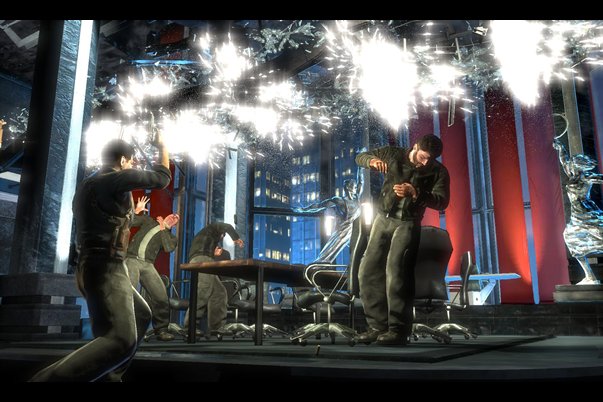Experimental narrative structures in games
Literary concepts and dynamic perspectives can make games better
Abstraction
“Abstraction” is a broad term, so we’ll clarify. We are not referring to “abstract games.” Guitar Hero could be classified as abstract, because it is based on visual representations of music. An actual guitar player obviously does not see a scrolling fret board with colored dots on it as he plays. A game like Everyday Shooter, as well, has little basis in physical reality.
What we are attempting to describe is an abstract point-of-view of an otherwise natural representation of reality. The Cubists were fascinated with this concept, and attempted to paint objects as if they were being viewed simultaneously from multiple angles. The word “simultaneously” is the key here, as time and the perception of time have much to do with this type of abstraction.
The slowing down or reversing of time in games like Stranglehold, for example, is a form of abstraction. “Split-screen” editing is also an abstraction, as seeing an event from multiple angles at the same time, or two non-adjacent events at the same time, is not possible in reality without the use of multiple cameras.

Above: Stranglehold toys with the distortion of time
Our next hypothetical game takes these abstractions a bit further than the occasional Max Payne or Stranglehold style time distortions, and applies them to the entire game experience (and may possibly be one of the worst ideas for a game ever). The screen is split vertically down the middle. The left side of the screen displays this moment in time, while the right side displays what happened 10 seconds ago. At any time, the player may switch control to the right “10-second-ago” side of the screen, which would cause the left side to jump 20 seconds back in time, to 10 seconds before the events taking place on the now-current right side. Continuous switching would send the game character further and further into the past.
Weekly digests, tales from the communities you love, and more
We would consider this hypothetical game to contain an overall abstract POV, because it presents multiple moments in time simultaneously.



